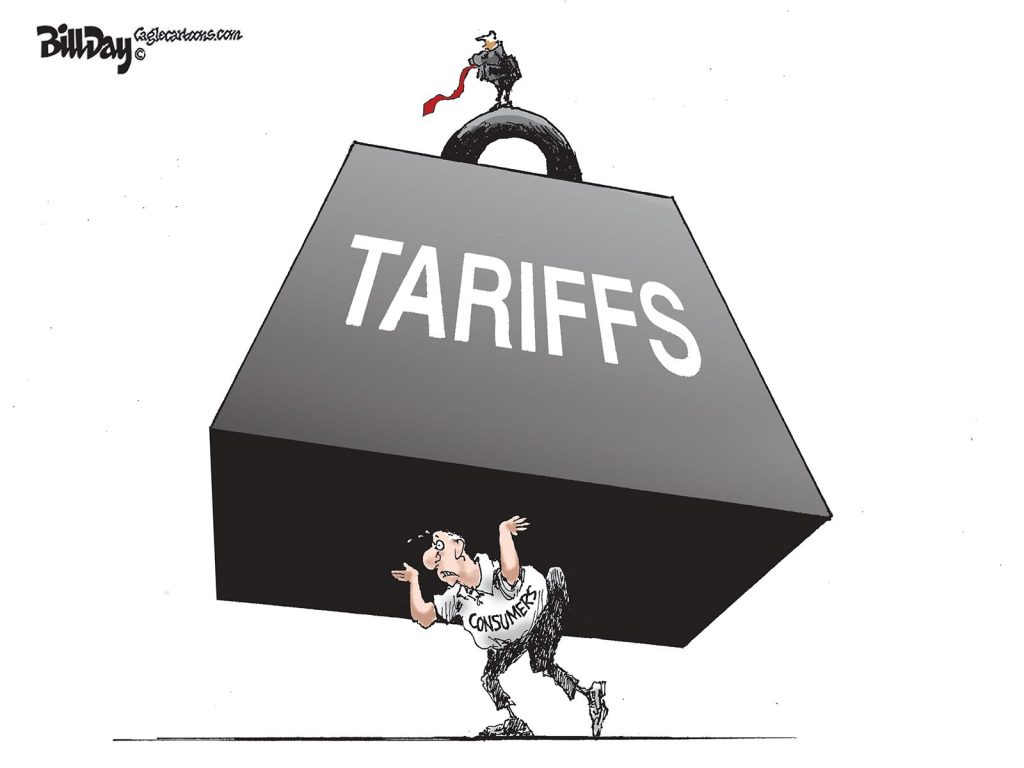On February 4, 2001, the first broadcast of Smart City featured a young Pittsburgh economist who was about to turn traditional economic development theory on its head.
His name was Richard Florida, whose research on the so-called creative class, had attracted the attention of the radio program’s host/producer Carol Coletta, who’s always had an uncanny knack (in our clearly biased opinions) for anticipating trends and recognizing seminal research.
Shortly after the broadcast, she proposed to local government and the Memphis Regional Chamber that Memphis should be the first city to apply Mr. Florida’s theories to its economic development. They agreed, and the Memphis Talent Magnet project was born.
Talent matters in today’s economy because “the cities that win will be the cities that are abundant in ideas and talent, rather than those abundant in raw materials or inexpensive labor,” her proposal said. “As a result, attracting and retaining educated young people who make up the most mobile segment of the talent pool are the keys to a healthy, dynamic economy.”
Power Of Promise
Over about six months, Ms. Coletta and David Williams of The Williams Company (who now head Leadership Memphis) – with the help and support of Prof. Florida – conducted peer city research, one-on-one interviews and focus groups with young, urban knowledge workers and corporate recruiters.
Their goal: to identify high-leverage actions that Memphis could take to become a compelling place for the young talent that underpins today’s economy.
To do this, Memphis strengths and weaknesses were assessed, the factors that motivate mobile knowledge workers to choose Memphis were identified and successful programs in similar cities were examined.
Primary themes of the final report were the power of perceptions, the power of peak experiences, the power of the Web and the power of brand identity.
The “Real” Memphis
“Research suggests that smart young knowledge workers are demanding consumers of experience, preferring nationally competitive or authentic ‘peak experiences’ to a variety of average or mediocre options,” the report said. “When asked to identify unique Memphis experiences that could compete with cities anywhere, they responded with examples of peak experiences in four broad areas: arts and culture, active outdoor recreation, culinary and intellectual life.”
As for brand identity, the report said Memphis should start by updating themes, images and packaging to communicate the “real” Memphis. “One could make the case that Memphis is a brand that is ‘dead,’ if one considers how often images of the deceased are used,” it said. “A concerted effort is needed to convey a more powerful, compelling, consistent message…(with) distinctive audio cues based on our music” and to replace old, distorted images with vibrant Memphis scenes.
In addition, the branding recommendations called for:
* Spreading the word that Memphis music didn’t die with Elvis
* Using lifefrommemphis.com as a showcase for current bands and using the “Live from Memphis” tagline in the Flyer and Playbook to spotlight stand-out events
* Honoring and updating civil rights images to include the Freedom Awards
* Replacing riverboat images with kayaking on the river and updating images of moonlight and magnolias with authentic “roots” experiences and outdoor recreation
Outdoor Peak Experiences
As for outdoor experiences, the report called for emphasis on:
* Kayaking in the Mississippi River and canoeing on the Wolf River
* Cycling on the Mississippi River Trail, hiking and cycling at Shelby Farms Park, and cycling on paths linking university campuses and major outdoor attractions (Shelby Farms Park, Mississippi River, Shelby Forest and T. O. Fuller State Park)
* Special events like Outdoors Inc.’s Canoe and Kayak Race on the Mississippi River
* Making Memphis more bike and roller blade-friendly and developing several high profile bike and pedestrian paths
* Eliminating restrictions like the prohibition against rollerblading on Main Street and making downtown more dog-friendly with relaxed sidewalk café rules and dog parks
Artful Recommendations
On the arts front, recommendations included:
* Supporting livefrommemphis.com for its strong audio cues for the Memphis brand
* Supporting cutting edge, nationally-acknowleged arts and culture that projects a city of vitality and creativity
* Spotlighting vibrant hip-hop and house scenes
* Sponsoring the creation and performance of new works by young Memphis artists
* Encouraging the presentation and performance of art in casual, unexpected settings, literally moving it “outside the box,” making it “more present” and animating downtown with events such as “Art Apart,” “Art Space” in Washington, D.C., and “Making a Scene” in Pittsburgh
* Encouraging comedy, film, digital and other alternative arts showcases and aspire to national competitiveness, such as spin-offs of affiliations with top brands like Sundance or HBO Comedy Arts Fest
* Creating a culture of inclusion by supporting an Emerging Artists Collaborative, Mayor’s Award for the Arts, and MacArthur-type grants
* Building a unified website and mailing list for promoting and reporting on arts and cultural events
The Three T’s
Under the heading of technology, tolerance and talent, the report called for:
* Championing university initiatives to develop nationally competitive technology programs
* Supporting Emerge Memphis as the city’s technology incubator
* Supporting Memphis Bioworks Foundation to spawn new businesses
* Supporting local organizations such as Lick the Toad and Entrepreneurs Roundtable
* Developing visible celebrations of diversity
* Supporting and promoting Mpact and Hands on Memphis
* Sponsoring events like Austin’s “biobashes” to encourage artists, entrepreneurs and technology workers to get acquainted
* Creating a series of videoconferences with “great innovators” at FedEx Institute
* Initiating a movement similar to Pittsburgh’s “Ground Zero,” an open network of creatives
* Developing online social networking opportunities for talented people.
P.S.
Other recommendations included the packaging and promotion of intellectual events in Memphis by emulating the Chicago Tribune’s Sunday page devoted to lectures, classes and book signings, and building a unified website and mailing list for promoting intellectual events to help smart people find smart people through online networking.
Meanwhile, local government and businesses were urged to help give more neighborhoods the opportunity to be like Cooper Young and South Main, offering their own neighborhood gathering places, their own festivals and their own ethos.
Finally, the report recommended the creation of a Memphis News Bureau that would execute media relations strategies to support the Talent Magnet Report recommendations.
Noting that promising initiative were already under way, the Talent Magnet Report was based on the understanding that there are no projects or programs that are the magic answer to attracting talent. Rather, success comes from multiple actions on multiple fronts to create a city whose environment is creative and vibrant at its heart.
Back To The Future
It’s been five years since the Memphis Talent Magnet Report was issued, but most of its recommendations remain to be implemented. Professor Florida this week becomes the bookend for our flirtation with talent strategies since he jump started our city’s conversation in 2001 and brings it up-to-date this week at the Chamber’s Annual Chairman’s Meeting.
For us, the most encouraging development of the past six years is inarguable. It is the growing group of active young knowledge workers who are demanding a voice in the decisions of their city and who are shaking up the conventional wisdom about everything from the arts and music to politics and public policy. They are often met with resistance and even hostility (as shown by the recent anti-Mpact Memphis vote by the county board of commissioners), but at the end of the day, the real test about whether Memphis is serious about talent is whether we will give them anything more than lip service.
Yes, the Memphis Talent Magnet Report changed our vocabulary. But the real challenge has always been for it to change our behavior, and we do that by opening up the halls of power to a new generation whose energy and new ideas have never been more needed.
Tomorrow: Memphis Manifesto Summit



